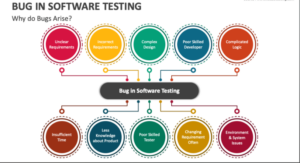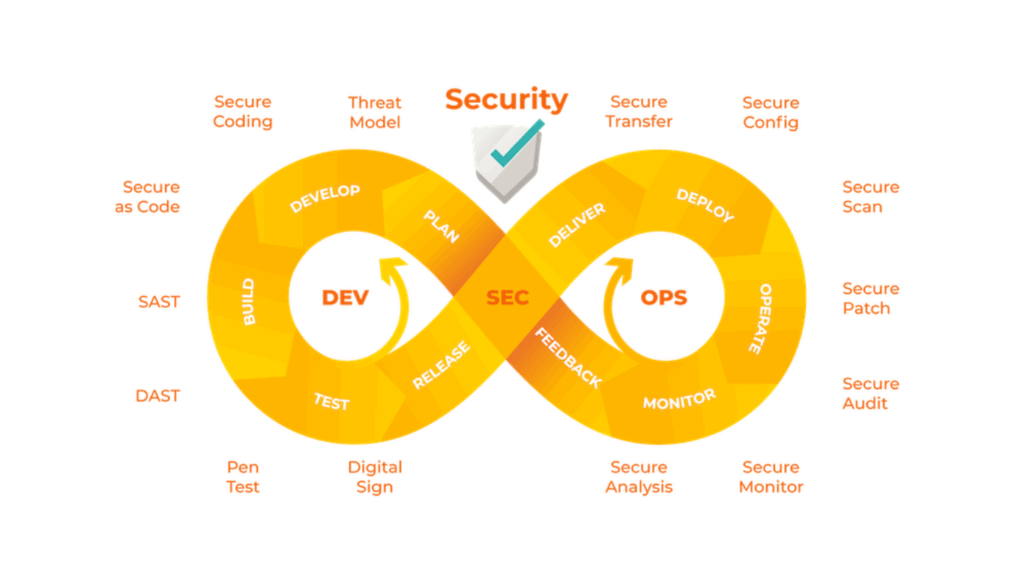Backward compatibility testing is any application/product developed using one version of a platform that still works in a newer version of a platform. The testing that makes sure new version of a product to still to work with the older product is understood as Backward compatibility testing.
For example,
Consider a user has created a very complex excel sheet to track project schedule, resources, expenses using MS excel 2010. The user will upgrade his MS office to 2020 version. The functions that were working on MS-office 2010 would still work which suggests assets created using older version would still work.
Backward compatibility is an important test process from the perspective of the end user. The idea is to ensure customer satisfaction in terms of performance, security and also overall functionality which is done by testing the application across different browsers, hardware configurations, operating system. While we describe backward compatibility testing, we see a great deal of changes in our web or may be mobile applications or may be mobile operating systems versions as well. With each passing phase of technology, tech giants are having competition against each other in order to excel. Software companies like Samsung, iphone are in the race to retain the maximum market segment possible. Hence the each version being released with new features being added, testing becomes a crucial factor, thus backward compatibility testing serves as a prerequisite for deploying the remake version within the market.
Some of the important factors worth considering during backward compatibility test are:
- Verifying the old and new version compatibility in terms of their API’s
- Validating security aspects of device.
- Whether the new version is working fine with old components like hardware, network configurations, battery etc.
- The newer version does not affect user data or any other information on the user’s device.
- Graphics being an important part of a mobile device should be appealing as well as offer an interactive interface.
Benefits of Backward Compatibility testing:
- It helps to bring down expenses of operating a help desk to offer tech support to your customers for compatibility problems.
- We get valuable feedback to improve our overall process of software development.
- Backward compatibility also provides insights into how stable and scalable the software is
- We can make sure that the app is optimised for quality and that it fits the specifications required.
- To ensure that users will enjoy a consistent experience across platforms and enhance customer satisfaction.
The different compatibility testing services we offer are:
Any software product built for a particular version of a platform should run on the previous platforms. Backward compatibility testing is performed to make sure that the app function as it should.
- Compatibility Testing services
It involves the testing of old and new hardware and software to make sure they are compatible with one another concerning API’s.
- Security verification services
In this world, we realise how critical it is that our software app is impeccable security characteristics of app are validated.
- Performance verification services
To make sure optimal performance, our testing team carries out tests to determine the new version of the software or hardware can function smoothly with its older components like network configurations, battery, hardware, and so.






























13 Responses
Backward testing is done to make sure that the new version of the software is compatible with the older version of the product. It is very important to do this testing to ensure customer satisfaction in terms of performance, security and also overall functionality which is done by testing the application across different browsers, hardware configurations, operating system. A system needs to be checked from 3 different aspects to see its compatibility with the older versions. Compatibility testing, security verification and performance testing.
Compatibility testing is used to ensure that application or software is properly working with different browser, hardware, operating system etc.
Compatibility testing have two types:
1. Backward compatibility
2. Forward compatibility
Backward compatibility is also knowns as downward compatibility testing.
Backward testing is testing of older version of software/applications to verify its successful performance with newer hardware or software.
Forward compatibility testing is testing of new or upcoming version of software/application to verify its performance with existing software/hardware.
Backward compatibility testing is any application or product developed using one version of a platform that will be working even if the new version of platform has been started using in current time. there are various benefits of Backword compatibility testing is it brings down the expences of operating a help desk to your customers for compatibility problems.
Backward compatibility testing is any application/product developed if does the new version work with old components.
Backward Compatibility testing is testing whether the new software developed is compatible with the older versions of the other software. example: Latest release MS office is working with older version of Windows.
Backward compatibility testing is a process to verify the compatibility of the new version of software/hardware application with its older version in terms of performance, security and overall functionality .
Backward compatibility testing is any application/product developed using one version of a platform that still works in a newer version of a platform. The testing that makes sure new version of a product to still to work with the older product is understood as Backward compatibility testing.
Backward compatibility testing confirms if the developed software is compatible with older version of the software in terms of API. It is one of the crucial testings performed for end user.
Backward compatibility testing is done to ensure that the software build for a specific version of operating platform/hardware still works with the older version of that specific operating platform/hardware. The different factors considering while doing compatibility testing are
1.the older and newer version are compatible with each other
2. the user date is not affected by the the new version of software
3 the performance of the new version of the software should be good to ensure the customer satisfaction
4 the graphical interface of the new version should be interactive with the user.
Compatibility testing is used to ensure that application or software is properly working with different browser, hardware, operating system etc.
Compatibility testing have two types:
1. Backward compatibility
2. Forward compatibility
Backward compatibility is also knowns as downward compatibility testing.
Backward testing is testing of older version of software/applications to verify its successful performance with newer hardware or software.
Forward compatibility testing is testing of new or upcoming version of software/application to verify its performance with existing software/hardware.
backward compatibility testing is about checking the older version of a software or hardware’s compatibility with the newer version of that software and satisfying the End user maintaining the high quality. making sure that the new version of a product still work with the older product taking some prerequisites in mind like-
verifying the old and new version compatibility in items of their API
Validating security aspect of device.
weather new version is working fine with the old one.
new version does not affect the user data or any other information on the user advice.
Backward compatibility testing is any application/product developed using one version of a platform that still works in a newer version of a platform. Backward compatibility is an important test process from the perspective of the end user. The idea is to ensure customer satisfaction in terms of performance, security and also overall functionality which is done by testing the application across different browsers, hardware configurations, and operating system. The benefits of backward compatibility testing are it helps to bring down expenses of operating a help desk to offer tech support to your customers for compatibility problems, getting valuable feedback to improve the overall process of software development, providing insights into how stable and scalable the software is, making sure that the app is optimised for quality and that it fits the specifications required, and ensuring that users will enjoy a consistent experience across platforms and enhance customer satisfaction.
Backward compatibility testing is any application/product developed using one version of a platform that still works in a newer version of a platform. The testing that makes sure a new version of a product is still to work with the older product is known as Backward compatibility testing.Backward compatibility is an important test process from the perspective of the end user. The idea is to ensure customer satisfaction in terms of performance, security and also overall functionality which is done by testing the application across different browsers, hardware configurations, operating systems.
Benefits of backward compatibility testing are
It helps to bring down expenses of operating a help desk to offer tech support to your customers for compatibility problems.
We get valuable feedback to improve our overall process of software development.
Backward compatibility also provides insights into how stable and scalable the software is
We can make sure that the app is optimised for quality and that it fits the specifications required.
To ensure that users will enjoy a consistent experience across platforms and enhance customer satisfaction.